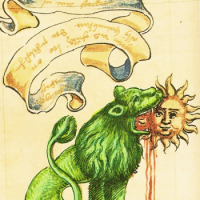Beiträge: 17
Sprache: English
sparksbet (Profil anzeigen) 2. September 2014 19:45:02
I'm in the midst of translating Papers, Please, one of my favorite PC games, into Esperanto, using the localizer that the creator provided to the public. Since I doubt he'll ever have motivation to package this for sale, it's almost entirely for fun and personal benefit. However, I'd like to be as accurate and thematic in my translation as possible.
Papers, Please is set in a communist nation, in which you play as the border guard inspecting passports. Most of the dialogue in the game has sort of a 'Eastern European' flair to it - it's all English, and he doesn't use phrases associated with the actual Soviet Union, but the syntax, word usage, and especially the omission of most articles in the English dialogue makes it instantly recognizable as an Eastern European accent. In his directions to localizers, the creator of the game asked that they do something equivalent in their native tongues if such was possible. For many languages, it was not, but I feel that such an effect would be possible to create in Esperanto.
What are some of the common tics of Russian Esperantists? I recall reading people speak of some of the common mistakes that identify native English learners of Esperanto - are there similar common mistakes or unconventional usages among native Russian learners? Or is there some other way to convey this Eastern European-esque vibe in the dialogue? Additionally, what are words that are so closely associated with the Soviet Union (like "comrade," for example) that I should avoid using?
Thank you!
nornen (Profil anzeigen) 2. September 2014 19:58:11
erinja (Profil anzeigen) 2. September 2014 20:00:37
sparksbet (Profil anzeigen) 2. September 2014 20:05:54
nornen:Is the dialogue audio or text or both?The dialogue is entirely text, with random grumbling sounds being the closest to voice-acting in the game. Thankfully I only need to translate text, because voice-acting would probably be too daunting for me.
Additionally, the localizing tool doesn't include the letters ĉ, ĝ, ĥ, ĵ, ŝ, or ŭ in the fonts used by the game, so I'm using the x-equivalents.
nornen (Profil anzeigen) 2. September 2014 20:09:33
sparksbet:What you can do there (which I did while translating a game myself) is the following:nornen:Is the dialogue audio or text or both?The dialogue is entirely text, with random grumbling sounds being the closest to voice-acting in the game. Thankfully I only need to translate text, because voice-acting would probably be too daunting for me.
Additionally, the localizing tool doesn't include the letters ĉ, ĝ, ĥ, ĵ, ŝ, or ŭ in the fonts used by the game, so I'm using the x-equivalents.
Look where the fonts the game uses are located. If you are lucky they just reside somewhere in your file system. Or maybe your SDK allows you to access them. Or if you are unlucky you have to extract them from some propietary binary package format.
If you manage to lay hands on the font and if it is some standard format (which most probably it will be, like truetype, type1, postscript), you can patch the font itself and overwrite codepoints you don't need with Esperanto glyphs. And then use in your translation those codepoints for the special characters.
sparksbet (Profil anzeigen) 2. September 2014 20:12:47
nornen:I'm currently localizing the game within a localizer the creator made for Chrome. There are instructions somewhere for altering fonts, but they're too technical for me as of now. I may look to adding in the true letterforms later on, especially if I plan to share my translation, but for now I'm focusing on the translation itself and thus the x-forms work fine for the time being.
What you can do there (which I did while translating a game myself) is the following:
Look where the fonts the game uses are located. If you are lucky they just reside somewhere in your file system. Or maybe your SDK allows you to access them. Or if you are unlucky you have to extract them from some propietary binary package format.
If you manage to lay hands on the font and if it is some standard format (which most probably it will be, like truetype, type1, postscript), you can patch the font itself and overwrite codepoints you don't need with Esperanto glyphs. And then use in your translation those codepoints for the special characters.
nornen (Profil anzeigen) 2. September 2014 20:18:29
So as you and others already pointed out, implement what we are expecting Russian to do wrong:
- Drop articles.
- Drop subject pronouns.
- Drop verb "esti".
- Replace verb "havi" by "al X Y" (У меня собака. = Al mi hundo. = Mi havas hundon.)
- Invent an extra case like "-om" and use it after prepositions. (No russian speaker actually does this, but it might add to the flair): Li vidis ŝin en la lernejo. = Vidis ŝin en lernejom.
- As long as the meaning doesn't suffer, you could degrade non-accented "o" to "a" (a-kanje) and non-accented "e" to "i" (i-kanje).
- Replace every instance of the letter H by G. Like Holland = Голландия.
- Use a lot of "ĥuj".
mbalicki (Profil anzeigen) 2. September 2014 20:59:47
(1) Russian uses double negatives. http://paperno.bol.ucla.edu/ni_cls_abstract.pdf
(2) At the beginning of the word plain “e-” occurs rarely in Russian; in most of the cases it is “je-”. As in Европа (jevrópa), Евангелие (jevangjélije) or епископ (jepískop).
(3) In places where Belarusian uses diphthongs “aŭ” and “eŭ”, Russian has got “av” and “jev”. As in Европа (jevrópa), авто (avtó) or август (ávgust).
(4) Every time о is not stressed it is reduced from /o/ to /ə ~ ɐ/. As in готов (gatóv), облако (óblaka) or молоко (malakó). You could try to simulate this by changing every unstressed “o” with “a”.
noelekim (Profil anzeigen) 3. September 2014 04:26:21
sergejm (Profil anzeigen) 3. September 2014 04:54:46
nornen:- Drop articles.Yes
nornen:- Drop subject pronouns.Esperanto verbs have no personal endings, so doesn't allow you to miss subject pronouns.
Russian verbs in past tense also havo no personal endings, but have gender endings.
nornen:- Drop verb "esti".Yes, but "estas" only. "был(a)" (estis) "будет" (estos) are still used.
nornen:- Replace verb "havi" by "al X Y" (У меня собака. = Al mi hundo. = Mi havas hundon.)"cxe mi estas hundo" = "у меня есть собака" in this case "есть" (estas) is used.
nornen:- Invent an extra case like "-om" and use it after prepositions. (No russian speaker actually does this, but it might add to the flair): Li vidis ŝin en la lernejo. = Vidis ŝin en lernejom.No. "Он видел её в школе" is stiil "li vidis ŝin en lernejo"
But some prepotions are different:
"на Украине" - "sur Ukraino" instead of "in Ukraino"
nornen:- As long as the meaning doesn't suffer, you could degrade non-accented "o" to "a" (a-kanje) and non-accented "e" to "i" (i-kanje).Yes, but this don't make such effect, as changing noun marker "-o" to adjective "-a".
nornen:- Replace every instance of the letter H by G. Like Holland = Голландия.Yes, but not always.
nornen:- Use a lot of "ĥuj"."kaco" Esperanto. but this is insult and cannot be used is common speach.
Russian has Accusative, but most nouns has the same form as Nominative. To distinct subject and object Russians use Genetive instead of Accusative for alive object (Spaniards use Dative (al) in this case).
kamarado (comrade) is "товарищ" (tovarisxcx) in Russian.
Police is named "милиция" "milicio"
"Papers, please!" is "Ваши документы!" "Viajn dokumentojn!", milicanoj rarely use "please".





